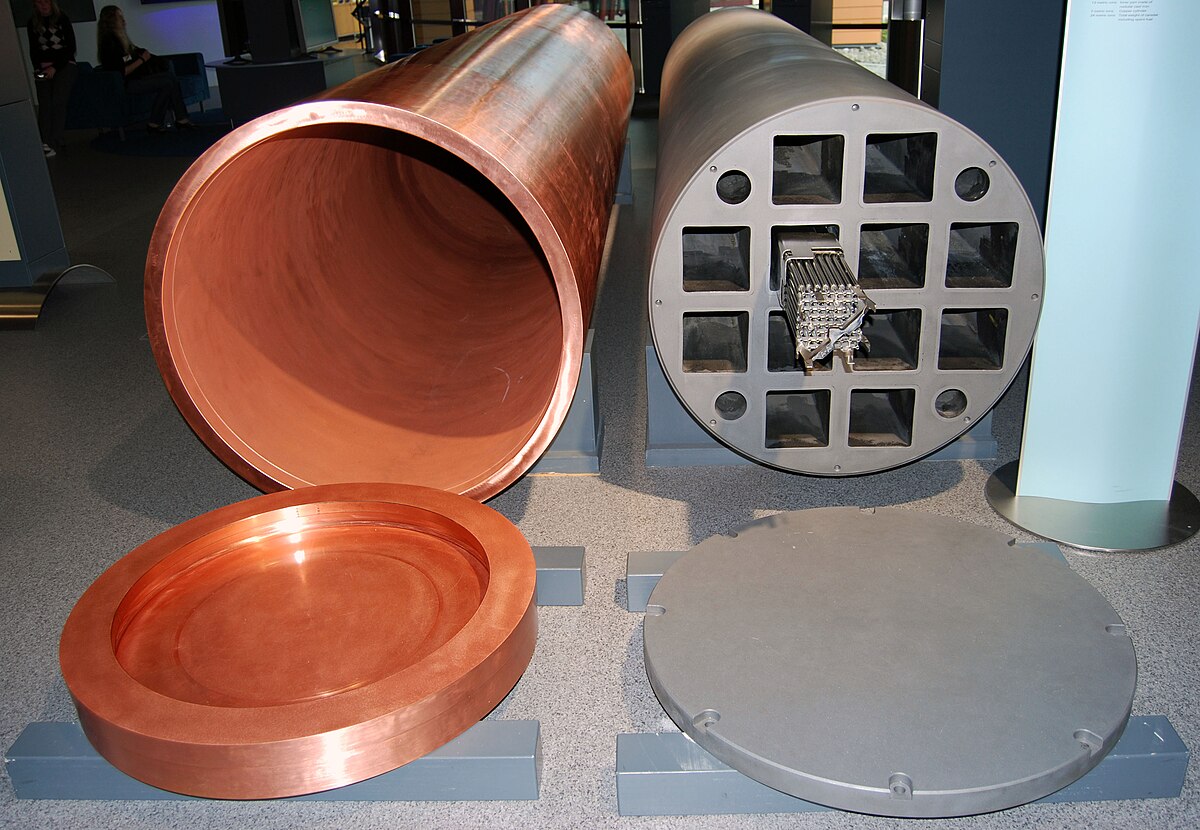Van den Hul Clearwater speaker cables
Page 2 - Seeking answers? Join the What HiFi community: the world's leading independent guide to buying and owning hi-fi and home entertainment products.
You are using an out of date browser. It may not display this or other websites correctly.
You should upgrade or use an alternative browser.
You should upgrade or use an alternative browser.
abacus
Well-known member
Cables should have low resistance, capacitance & Inductance which is easily provided by 2.5mm sq. OFC copper (Or 4mm sq. OFC if long runs), if it meets these criteria then maximum power will get from the amp to the speakers and give you a high damping factor. (If they have high capacitance and/or inductance then avoid them as they are of poor quality)
In the end it comes down to the user as to what they feel happy with. (Professional Music Studios (Who have way more resolving equipment than most HI Fi) use cables that meet the specs above for best performance)
Bill
In the end it comes down to the user as to what they feel happy with. (Professional Music Studios (Who have way more resolving equipment than most HI Fi) use cables that meet the specs above for best performance)
Bill
Thanks for that. Do you agree with the notion that a thicker diameter cable is better than a thinner one as a general rule? That's not what I'm finding with the Clearway, as I mentioned above.
Using cable of adequate gauge will ensure there are no audible losses in it. No need to go crazy though, 4-6 mm stranded will do just fine for the average setup.
I don't see such posts as patronising Rob.....would like to be spared the patronising posts of those who proclaim to know better. Cheers 🙂
After all, when you think about it, those that hear differences are 'proclaiming to know better' aren't they?
GSV Ethics Gradient
Moderator
I don't think there's anything out of order in setting parameters for a thread that you start.
Al ears
Well-known member
Not really, they just know and don't normally post about the fact because they also know everyone's hearing is different and proclaiming they know best is a futile exercise.I don't see such posts as patronising Rob.
After all, when you think about it, those that hear differences are 'proclaiming to know better' aren't they?
...except that starting with the idea that you're going to be patronised is unfortunate.I don't think there's anything out of order in setting parameters for a thread that you start.
It seems to me that some of the sensible advice about cable thickness and conductivity type is saying that all adequate cables do sound the same. Should Rob feel patronised by that opinion?
I don't think anyone should feel patronised.
There's enough victim culture in the world 👍
GSV Ethics Gradient
Moderator
If it's one he has heard before and doesn't share, quite possibly.Should Rob feel patronised by that opinion?
You have to understand that this sort of thing only goes in one direction - no-one starts a cable thread saying that they make no difference and has to put up with the same people telling them that they must have poor hearing/an insufficiently good hifi etc etc.
But, as ever with threads about anything whose purpose is just to conduct, we stray from the OP!
shadders
Well-known member
Hi,I will say that, in the interests of greater conductivity, OFC is not a gimmick.
Given the choice between standard and OF copper, I'd always choose the latter.
Could I, or anyone else actually hear the difference?
I wouldn't bet on it.
It is difficult to purchase non-oxygen free copper :

Oxygen-free copper - Wikipedia
 en.wikipedia.org
en.wikipedia.org
Unless they claim it is C10100 copper - Oxygen Free Electronic (OFE) copper, then OFC is the copper available everywhere.
The OFE copper is only 1% more conductive than OFC. All this means is that you are dropping perhaps 1% of the voltage for OFC than for OFE copper. End result, ever so slightly lower volume, so you can just turn it up a bit.
The label OFC is just a gimmick.
Regards,
Shadders.
Ok.... OFC..... minimum adequate guage..... inductance, impedance, capacitance..... yadder yadder.... Have you ever actually just sat down to listen to different cables and just used your ears?!Hi,
It is difficult to purchase non-oxygen free copper :

Oxygen-free copper - Wikipedia
en.wikipedia.org
Unless they claim it is C10100 copper - Oxygen Free Electronic (OFE) copper, then OFC is the copper available everywhere.
The OFE copper is only 1% more conductive than OFC. All this means is that you are dropping perhaps 1% of the voltage for OFC than for OFE copper. End result, ever so slightly lower volume, so you can just turn it up a bit.
The label OFC is just a gimmick.
Regards,
Shadders.
Ok.... OFC..... minimum adequate guage..... inductance, impedance, capacitance..... yadder yadder.... Have you ever actually just sat down to listen to different cables and just used your ears?!
No need when you know about these things. 🤓
Last edited:
No you're right they don't.no-one starts a cable thread saying that they make no difference
Because they'd soon be told they're closed- minded fools 🤪
The most famous speaker cable of all (the one that started it all) is still available in non-OFC form as 79 strand 'classic'.Hi,
It is difficult to purchase non-oxygen free copper :

Oxygen-free copper - Wikipedia
en.wikipedia.org
Unless they claim it is C10100 copper - Oxygen Free Electronic (OFE) copper, then OFC is the copper available everywhere.
The OFE copper is only 1% more conductive than OFC. All this means is that you are dropping perhaps 1% of the voltage for OFC than for OFE copper. End result, ever so slightly lower volume, so you can just turn it up a bit.
The label OFC is just a gimmick.
Regards,
Shadders.
You must have noticed how much better pure OFC cable is to solder. Don't you think that better heat conduction means better electrical conduction?
Genuinely pure, OFC is no gimmick to me.
Yes, that last bit, I've seen definitely seen that accusation levelled at them.... no-one starts a cable thread saying that they make no difference and has to put up with the same people telling them that they must have poor hearing/an insufficiently good hifi etc etc.
And, if it's not said, it's often, certainly implied.
They just don't take it as an insult or think they're being patronised, that's all I'm saying. Just giving a detached, balanced view.
shadders
Well-known member
Hi,The most famous speaker cable of all (the one that started it all) is still available in non-OFC form as 79 strand 'classic'.
You must have noticed how much better pure OFC cable is to solder. Don't you think that better heat conduction means better electrical conduction?
Genuinely pure, OFC is no gimmick to me.
Can you state which speaker cable is available in non-OFC copper ?
In the end it does not matter. All different metals have a different conductivity, so all you need to do is turn the volume up slightly for those slightly less conductive.
It can be shown using a null test that a copper cable does not introduce distortion or changes of any kind to the signal, apart from attenuation.
Regards,
Shadders.
A-Line
Well-known member
Back in the mid-1980's I was using copper non-OFC Monster Cables with clear insulation. Over a period of 3 years that copper cable started to turn green and was clearly visible through the clear insulation.
Somehow I don't think that such a transformation can be good for the sound...just saying.
Somehow I don't think that such a transformation can be good for the sound...just saying.
shadders
Well-known member
Hi,Back in the mid-1980's I was using copper non-OFC Monster Cables with clear insulation. Over a period of 3 years that copper cable started to turn green and was clearly visible through the clear insulation.
Somehow I don't think that such a transformation can be good for the sound...just saying.
The oxidation of the copper is on the outside. It then protects the copper underneath from further oxidation. Copper oxide is non-conductive, and the copper underneath is not affected in conductivity :

Why is Copper the Best Choice for Electrical Connectors?
Why is copper used for most electrical wiring? Because copper electrical connectors are the best in the game.
www.meadmetals.com
Regards,
Shadders.
A-Line
Well-known member
Thanks that's good to know then.Hi,
The oxidation of the copper is on the outside. It then protects the copper underneath from further oxidation. Copper oxide is non-conductive, and the copper underneath is not affected in conductivity :

Why is Copper the Best Choice for Electrical Connectors?
Why is copper used for most electrical wiring? Because copper electrical connectors are the best in the game.www.meadmetals.com
Regards,
Shadders.
There's plenty of non-OFC copper wire in the form of zip cord & off brand Chinese speaker cables available for cheap prices at most hardware stores...
Usually 6-12 £ is all that's needed for a set of speakers.
Last edited:
GSV Ethics Gradient
Moderator
I hate to say it, but that's not how I'd describe your average cable thread!Just giving a detached, balanced view.
Samd
Well-known member
I hate to say it but I'd never describe a cable thread as average 😉
GSV Ethics Gradient
Moderator
You'd noticed that too, eh...?I hate to say it but I'd never describe a cable thread as average 😉
Have used several speaker cables
QED silver 25 Anniversary
Chord Odyssey 2
Chord Odyssey 4
Van Damme Total Definition Directional UP-LCOFC HiFi Interconnect & Speaker
CANARE 4S11 Star Quad Speaker cable Copper 4x2.08mm² (Currently in use)
MOGAMI W3103 OFC Copper Speaker Cable 2x4.mm² (Next purchase to suit Triangle Borea BR08 speakers)
I always find it difficult to say one cable is "Better" than the next rather than say they are "Different".
My Odyssey 2 & 4 were 4mtrs long but changed room so only need 2 mtr lengths hence Canare DIY cables.
Initially I would say they were more open and detailed and thought wow.. but if I was to put the Chord back in not sure I would hear a duller sound or in fact I was missing something in the Canare.
At the end of the day I am very happy with the sound, detail and sound stage. My recent NAD C268 power amp improved things dramatically.
My suggestion would be to buy some DIY cables from any of the main brands Van Damme, Mogami, Canare, Belkin etc. and just bare wire them to amps and speakers and do your own tests for minimal outlay.
QED silver 25 Anniversary
Chord Odyssey 2
Chord Odyssey 4
Van Damme Total Definition Directional UP-LCOFC HiFi Interconnect & Speaker
CANARE 4S11 Star Quad Speaker cable Copper 4x2.08mm² (Currently in use)
MOGAMI W3103 OFC Copper Speaker Cable 2x4.mm² (Next purchase to suit Triangle Borea BR08 speakers)
I always find it difficult to say one cable is "Better" than the next rather than say they are "Different".
My Odyssey 2 & 4 were 4mtrs long but changed room so only need 2 mtr lengths hence Canare DIY cables.
Initially I would say they were more open and detailed and thought wow.. but if I was to put the Chord back in not sure I would hear a duller sound or in fact I was missing something in the Canare.
At the end of the day I am very happy with the sound, detail and sound stage. My recent NAD C268 power amp improved things dramatically.
My suggestion would be to buy some DIY cables from any of the main brands Van Damme, Mogami, Canare, Belkin etc. and just bare wire them to amps and speakers and do your own tests for minimal outlay.
Hi thanks for that,I think that's pretty good advice, but whisper it quietly, but these Chord cables have improved a lot and I think I will now keep them.Have used several speaker cables
QED silver 25 Anniversary
Chord Odyssey 2
Chord Odyssey 4
Van Damme Total Definition Directional UP-LCOFC HiFi Interconnect & Speaker
CANARE 4S11 Star Quad Speaker cable Copper 4x2.08mm² (Currently in use)
MOGAMI W3103 OFC Copper Speaker Cable 2x4.mm² (Next purchase to suit Triangle Borea BR08 speakers)
I always find it difficult to say one cable is "Better" than the next rather than say they are "Different".
My Odyssey 2 & 4 were 4mtrs long but changed room so only need 2 mtr lengths hence Canare DIY cables.
Initially I would say they were more open and detailed and thought wow.. but if I was to put the Chord back in not sure I would hear a duller sound or in fact I was missing something in the Canare.
At the end of the day I am very happy with the sound, detail and sound stage. My recent NAD C268 power amp improved things dramatically.
My suggestion would be to buy some DIY cables from any of the main brands Van Damme, Mogami, Canare, Belkin etc. and just bare wire them to amps and speakers and do your own tests for minimal outlay.
Similar threads
- Replies
- 9
- Views
- 6K
TRENDING THREADS
-
-
-
-
Does What Hi-FI Ever Post a Bad Review?!?
- Started by keithiepoo
- Replies: 27
-
-
-

Space.com is part of Future plc, an international media group and leading digital publisher. Visit our corporate site.
© Future Publishing Limited Quay House, The Ambury, Bath BA1 1UA. All rights reserved. England and Wales company registration number 2008885.

